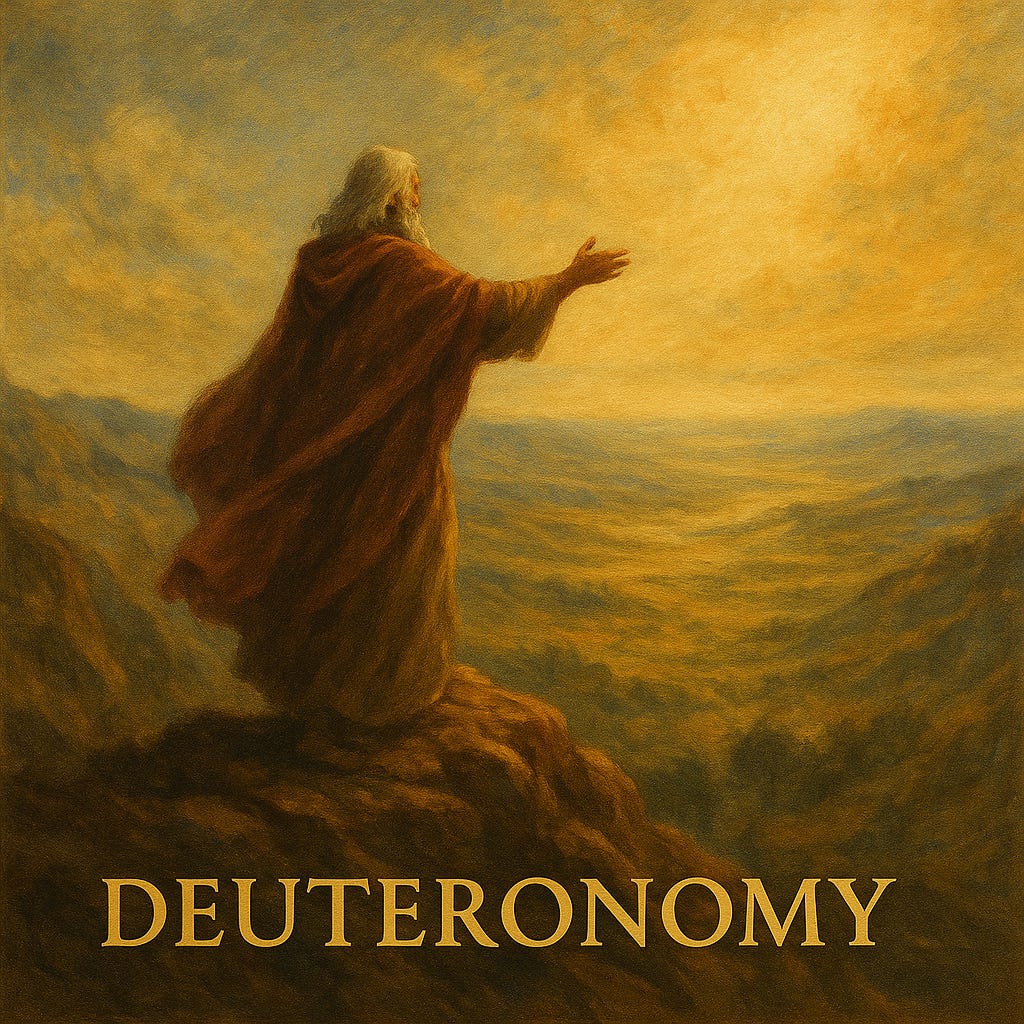Deuteronomy is the final book of the Pentateuch—the last words of Moses to a new generation of Israelites standing on the threshold of the Promised Land. It’s not just a recap of the law—it’s a call to covenant faithfulness, a passionate plea to remember what God has done, to love Him wholeheartedly, and to obey His commands not out of duty, but from the heart.
This book is less about ceremony and more about connection. It's Moses, a faithful but flawed leader, passing on the torch and urging the people not to forget the God who brought them this far.
Introduction: Why Deuteronomy Matters
Deuteronomy matters because we are forgetful people. We forget who God is, what He’s done, and who we are in Him. This book is God's reminder: Remember the journey. Remember the miracles. Remember the covenant. And live like it matters.
It’s not just for ancient Israel—it’s for all of us standing on the edge of change, growth, or transition. Whether you're starting a new chapter or trying to stay faithful in an old one, Deuteronomy invites you to return to the basics: love God, obey Him, and live fully.
Author & Date
Deuteronomy is traditionally attributed to Moses and was written during the final days of his life, just before Israel entered the Promised Land (around 1400–1200 BC). While Moses is the primary speaker, the final chapter, which describes his death, was likely added by Joshua or another prophet.
Keep reading with a 7-day free trial
Subscribe to Biblical Catholic Living to keep reading this post and get 7 days of free access to the full post archives.




